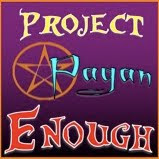Volunteers from the local Chapter responded immediately, and have been active round-the-clock since Thursday:
- Providing warm meals, hot and cold drinks, and snacks to emergency services workers, families, and clergy members at the scene. When you're a first responder in a situation like this one, you don't get to leave when you're hungry. Families don't want to leave, either, and neither do those supporting them. Mass Care volunteers feed them.
- Establishing and staffing a Family Assistance Center at a nearby hotel. Families can gather here, be together, meet with counselors, and have privacy from the media and well-wishers, while waiting on news of missing loved ones. Red Cross volunteers -- Family & Individual Client Services caseworkers, and Disaster Mental Health workers -- meet with families and individuals to ensure they are receiving needed Red Cross services.
- Providing counseling on-site and at the Chapter. Volunteer counselors are mental health professionals and are trained in disaster mental health.
- Connecting people via the Safe and Well List on the web. People can use the website either to list themselves as safe and well, or to search for someone they're concerned about.
All Red Cross disaster relief services are gifts from the American people.
A couple of important points:
- The Red Cross does not receive government funding.
- The National organization does not pay for local disaster response unless it reaches a certain magnitude. Chapters must raise funds in their local communities.
- Volunteers do not get paid -- they donate their time.
Due to the extraordinary generosity of the public, the financial donations and pledges received to date will cover the estimated cost for the Red Cross response to the I-35 W bridge collapse on August 1, 2007. Thousands of donors rushed to meet the needs of those who were involved in this tragic accident and their families, and because of their quick action the Red Cross was able to provide a safe place to rest, hot meals, basic first aid and mental health counseling to the survivors of this catastrophe.This is one of those times I actually am proud to be an American. :)
__________________
- For more information about the Twin Cities Area Chapter's response, click here and here.
- Click here for official information about what the American Red Cross does after a disaster.
- To find your local chapter or blood region, click here, enter your zip code, and click "find."
- To learn more about how to donate your time to help the Red Cross meet its mission to "help people prevent, prepare, and respond to emergencies," click here.
p.s. I need to be clear that I do not speak on behalf of the American Red Cross, but simply and solely for myself. Thanks.







No comments:
Post a Comment